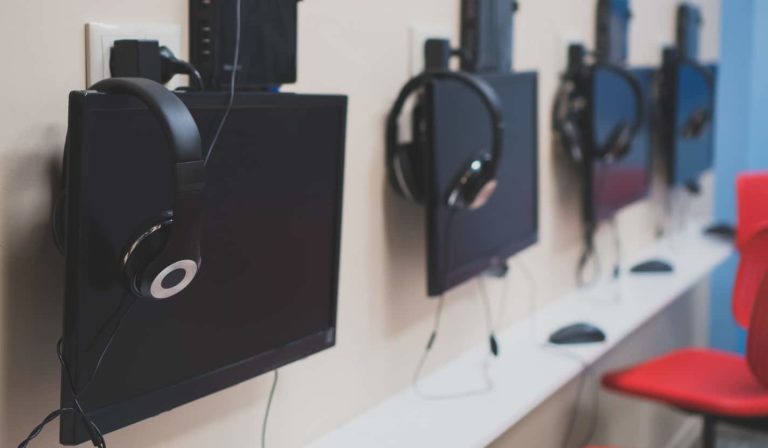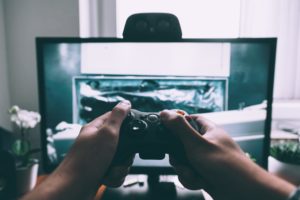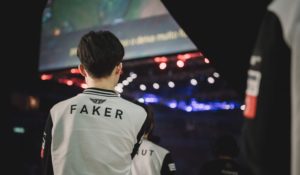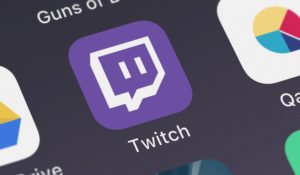This is to you, fellow parents. Screens…they’re literally omnipresent in our lives. Whether at work, school or at home we’re always using them. But for a competitive gamer screen time is taken to another level.
How much screen time is OK for a competitive gamer? For those not quite teenagers, no more than 2-hours a day is recommended. Teenagers typically play 2-4 hours a day practicing their craft. Young adults and professional gamers play 8 hours plus a day honing their skills.
I fully understand that this is a sensitive and personal decision. Many parents have different opinions, but these are the facts we found from health experts and actual professional gamers.
Setting the Stage
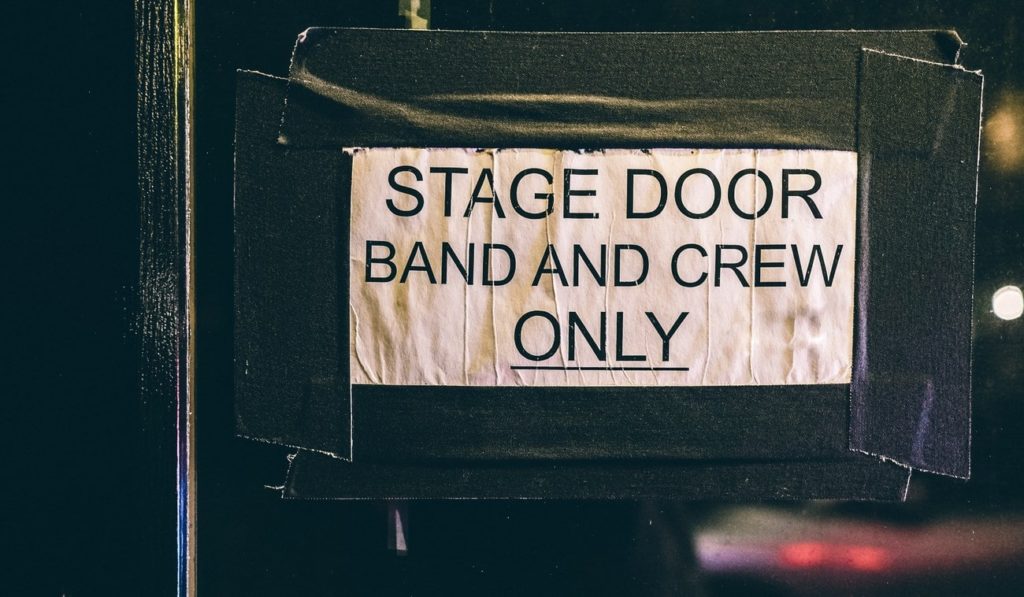
For many parents, the amount of time their kids spend in front of a screen each day is a concern. In fact, reading this article shows you have already given it some thought.
As a parent myself, this topic gave me a lot to think about.
How much time should my kids be spending in front of screens? What do the experts say? Does limiting screen time make a difference?
We’ve all seen firsthand both positive and negative results from time spent screens, whether computers or another type of screen.
Screens are a Job Requirement
Many of us have jobs where we’re dependent on screens to fulfill our duties and responsibilities. These screens give us a way to provide for our families.
I understand using a computer screen for supporting your family and a TV screen for playing video games is not necessarily the same thing (yet).
Let’s Figure it Out…Together
But I did have to admit to myself how much screens are a part of my life before I deciding on an acceptable level for competitive gaming.
With so many thoughts and questions running through my head, I decided to get some answers.
Let’s tackle some of these questions together.
What the Experts Say
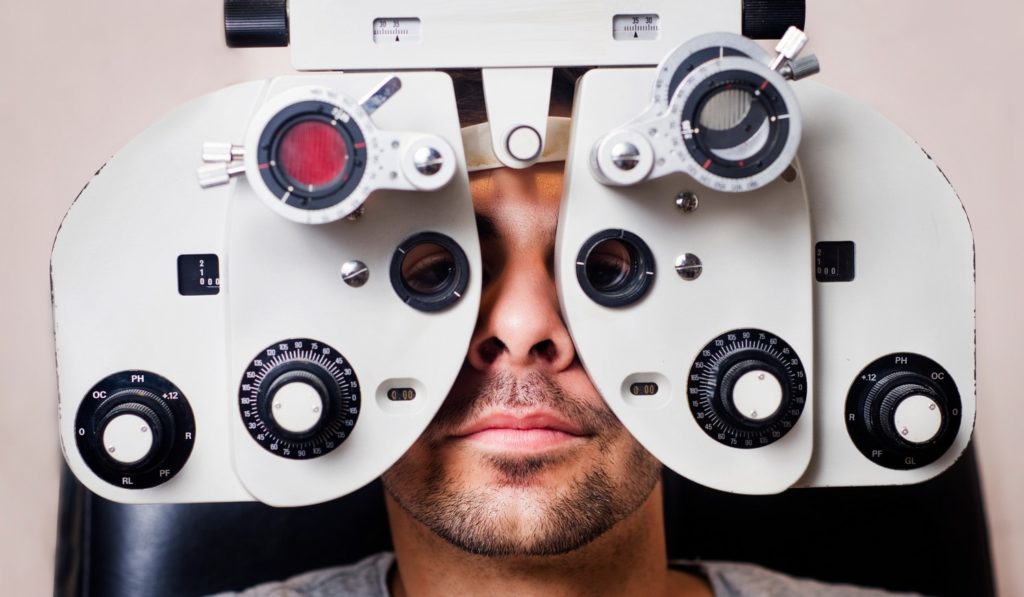
Many studies have been done on the effects of screen time on kids of varying ages.
The Original Professional Opinion
According to a pediatrician with the Mayo Clinic, they recommend no more than 2 hours of screen time a day. And that’s for kids age 5 all the way to teenagers.
The American Society of Pediatrics agrees with this standard of 2 hours a day.
Both organizations do say you can be flexible with the time if the children are engaged in watching “educational videos.”
This is sound advice from two well-respected organizations, but others are starting to reevaluate some of the medical findings from recent years.
The New Professional Opinion
Dr. Jon Sutton is Managing Editor of The Psychologist in England and he recently had a different viewpoint to share.
“We don’t talk about ‘book time’, ‘food time’, yet the idea has grown that there is ‘an analog way’ [to measure screen time] that is wholesome, genuine, and draws out our true selves.”
Dr. Sutton goes on to express that screens don’t make a significant enough difference in people’s sleep, social lives or aggression to be as big of a concern as it has become.
Using “Off Time” For Training
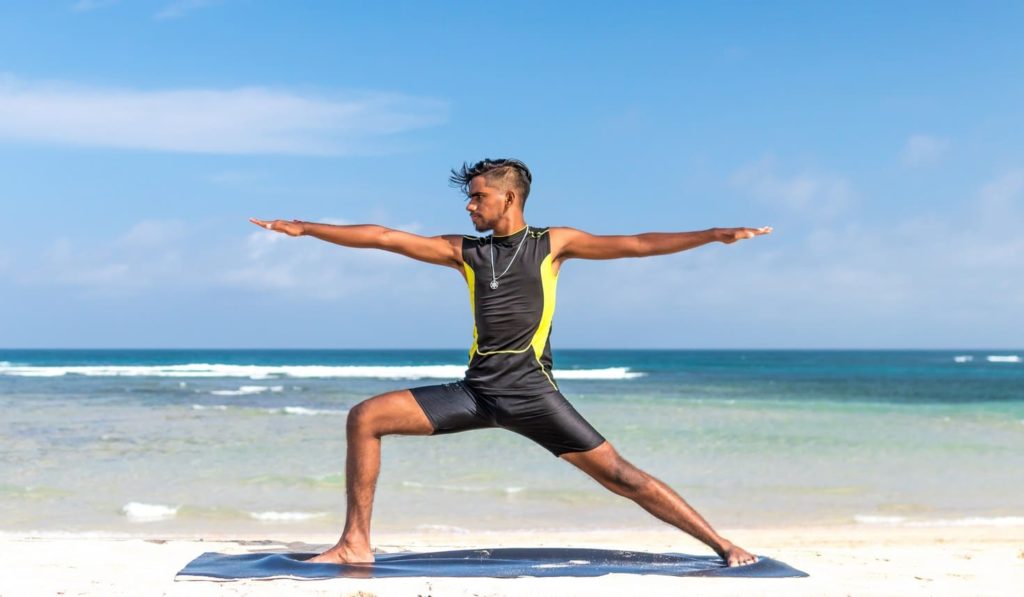
Striving for a professional gaming career will clearly require more than the average screen time.
There’s Value in Off Screen Time
It can be difficult for gamers to see the benefit of “off time” from screens.
Playing is the only way many gamers think they can improve. If they’re not playing…they must not be getting better!
They miss the benefits that come with putting the controller down and mixing up their training.
Professional gamers have coaches that fill gamers time with game-related activities between gaming sessions.
Both Parent and Coach
So, unless you hire a coach for your aspiring gamer, the duty of coaching falls on you…parental figure.
You need to become their coach and layout a plan together to reach your goals.
As their coach, it’s your job to lay out the benefits of studying game film and physical exercise.
Each of these aspects can help improve a gamer’s ability to compete.
Setting Expectations
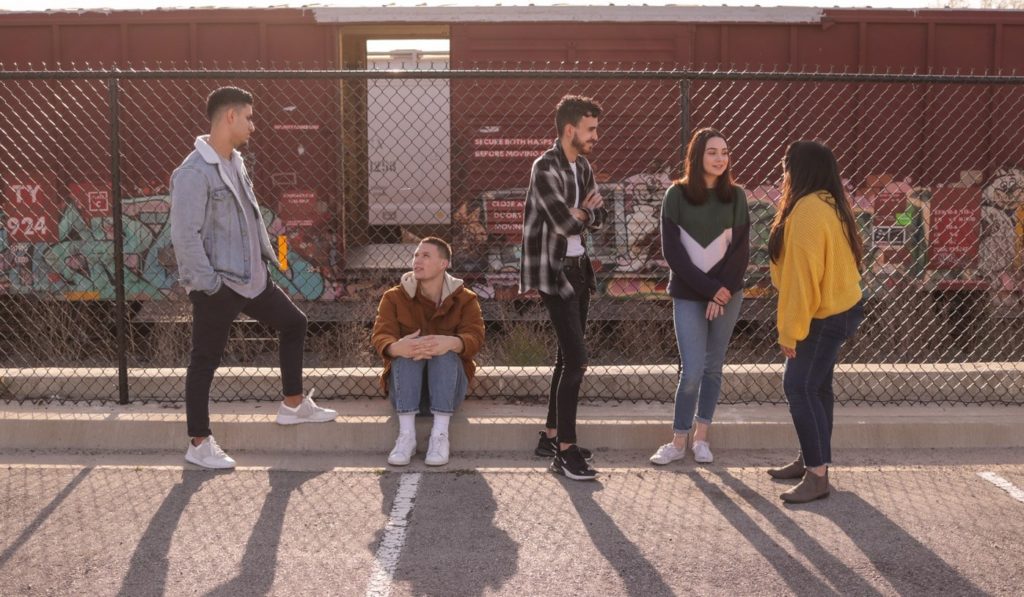
Now that we’ve had a chance to set the stage it’s time to be realistic about screen time for the aspiring professional.
Just like parents have different opinions on how much screen time is appropriate, gamers are starting to develop different opinions too.
Some say they learn more when they play less, and others will play between 12-14 hours a day.
As you learn more about esports you will also find different games require different levels of time commitments.
For now, let’s focus on screen time for the different age groups of professional hopefuls.
Those Not Quite Teenagers
We mentioned earlier in this article that most experts will suggest that younger kids spend no more than two hours a day on screens.
This seems to be an appropriate level of time in most cases.
Often kids who aspire to go pro are too young to compete and large amounts of screen time would be unnecessary.
This doesn’t mean kids can’t start getting to know the industry.
Just like with any sport, it’s a good idea to start getting immersed with things happening in the esports world.
It may be as simple as watching esports news updates and getting to know the teams and current pros.
You may even want to take the opportunity to volunteer at local events.
This could be a great way to introducing your child to the world of esports and learn more about it yourself firsthand.
The goal is to develop a passion for the industry and start learning rather than playing.
The Teenagers
As your kids get older, they will need to start applying what they have learned about the sport.
This will mean more screen time than you are used to, but it is all part of the process.
I’m not saying they should make the jump from 2 hours to 8 hours per day.
You can expect to see a jump to maybe 3 or 4 hours of screen time each day.
It may also be time to start talking about setting up a training regimen.
Professional football, baseball, and basketball players all start training when they are teenagers and continue through their professional careers.
The teenage years are when the aspiring gamer can start to develop screen discipline.
You need to show them the benefits of learning time management.
Teach them how to juggle school, homework, physical training, nutrition, and gaming.
Each of these is an important aspect of any athlete developing a career.
My brother and I grew up playing football, and my parents worked with us to make sure we stayed focused and worked towards our sports goals.
They helped us set up a routine that guided us, and it was our job to keep to that routine.
Young Adults and Professionals
At this stage in the game, screen time gets serious.
As a professional player, you can expect to see screen times of 8+ hours a day.
This doesn’t mean it all has to be done in a single sitting though.
It’s here that you will also start to see the game specific time requirements come into play.
The higher paying and more competitive games may require additional hours of study and practice.
Tristan “PowerOfEvil” Schrage doesn’t feel the need to spend as many hours playing as some of his competitors.
Tristan says, “Some players can play 20 games, and they maybe give just fifty percent of their focus,” says Schrage. “They learn only half as much as I do in ten games.”
Professional teams are often practicing together.
Clinton “Fear” Loomis says, “Bootcamps are an all-day thing, but we only train as a team for four to six hours.”
In the end, a player’s effectiveness comes down to how well they can focus during a game.
“You will not be focused 100 percent for 15 hours on a day. It is just not humanly possible”, says Koen “Koenz” Schobbers.
Even though professional gamers spend 8+ hours playing it is broken up into smaller blocks in order to maintain a high level of focus.
Healthy Compromise

Time spent in front of a screen does not have to be a daunting concern.
There are ways to maintain a healthy lifestyle and do the things you have a passion for.
I hope this eases some concerns for those with younger kids.
For those with older professional hopefuls, maybe this can help start a conversation that will lead to a common goal.
My brother and I developed a deeper relationship with our parents through sports.
I hope you can do the same with your kids through esports.
Related Questions
What’s the best monitor size for professional gaming? Almost all professional gamers use a 24 monitor for regular desktops, although 27 inches is widely used for those wanting a higher resolution. Anything larger than 27 inches is too large for viewing up close at a desk. ProSettings.net is reporting the majority of professional gamers use the BenQ Zowie 24.5 inch 240Hz Esports Gaming Monitor.

